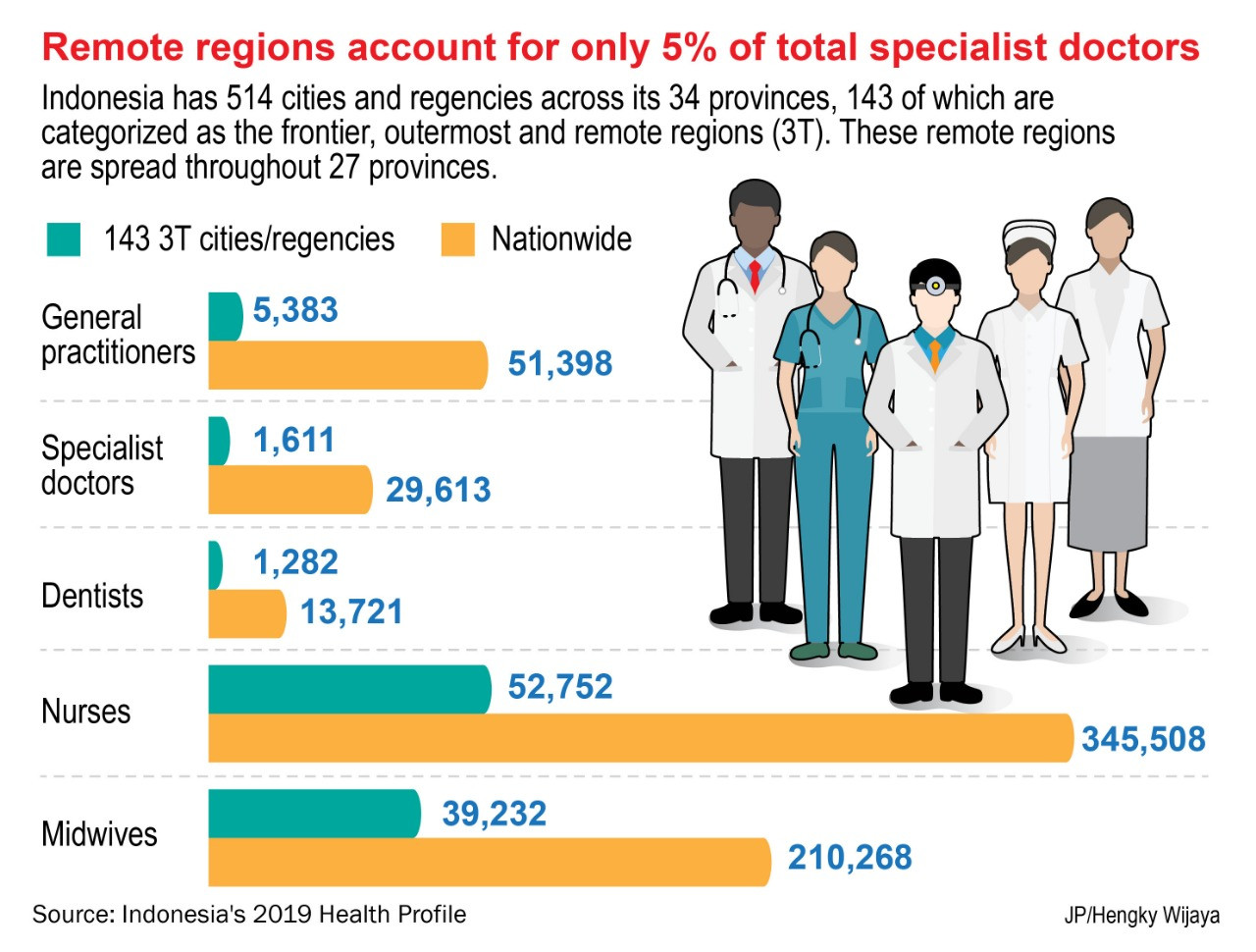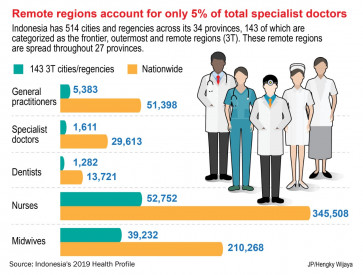Popular Reads
Top Results
Can't find what you're looking for?
View all search resultsPopular Reads
Top Results
Can't find what you're looking for?
View all search resultsHealth care bill, a call for specialist education reform
Medical professionalism reform and medical specialist education reform will not only have a positive impact on the careers of healthcare professionals but will also lift the country’s healthcare capacity.
Change text size
Gift Premium Articles
to Anyone
T
he doctor-patient ratio of 0.6:1000 in Indonesia as against the World Health Organization’s norm of 1:1000 clearly shows quite a big deficit. This was compounded by structural and functional challenges faced by the regulator while making decisions regarding medical education.
Other factors include the disconnect between education and health service delivery, the high cost of education and underutilization of existing resources. The COVID-19 pandemic has caused pressure on the healthcare systems.
Due to the country’s vast population and resulting scarcity of specialists, the healthcare industry is a major priority for the government. While the government is working toward a solution and targeting the required ratio, there is a need to revisit the overall medical specialist education.
With almost 90 percent of the population covered by the national health insurance provider BPJS Kesehatan, Indonesia has made commendable progress. The government should regard health as a strategic asset for national investment, sustaining the shift from volume to value-based healthcare and achieving the 3As of healthcare: affordability, accessibility and availability.
For Indonesia’s ambitious health reform, the omnibus bill on health care to succeed and for the largest exporter of patients in the region to become the destination for medical tourism, there is a need for relevant parties, including the healthcare customers, to direct themselves toward fundamental questions, exploring how medical professionalism is perceived and challenging insular and conservative attitudes.
Without an accessible and competent health workforce, millions of Indonesians will continue traveling overseas seeking medical services that match their needs. Medical professionalism reform and medical specialist education reform will not only have a positive impact on the careers of healthcare professionals but will also lift the country’s healthcare capacity so that Indonesians will no longer feel the need to be treated abroad.
It is public knowledge that to enter a specialist education requires a huge advance payment, not to mention the costly semester tuition fees. Most countries have adopted salary systems for general practitioners who participate in specialist education programs. Restraining the grueling high cost of specialist education also calls for the government’s attention, to provide equitable opportunities for all.



















